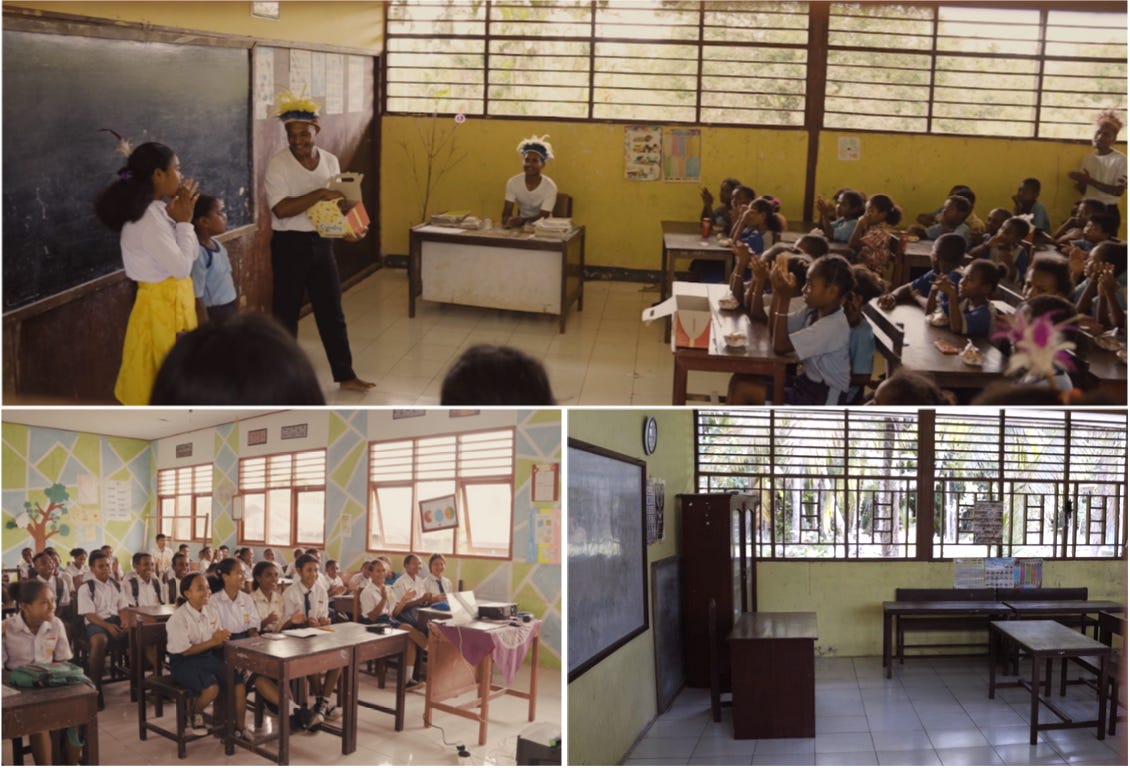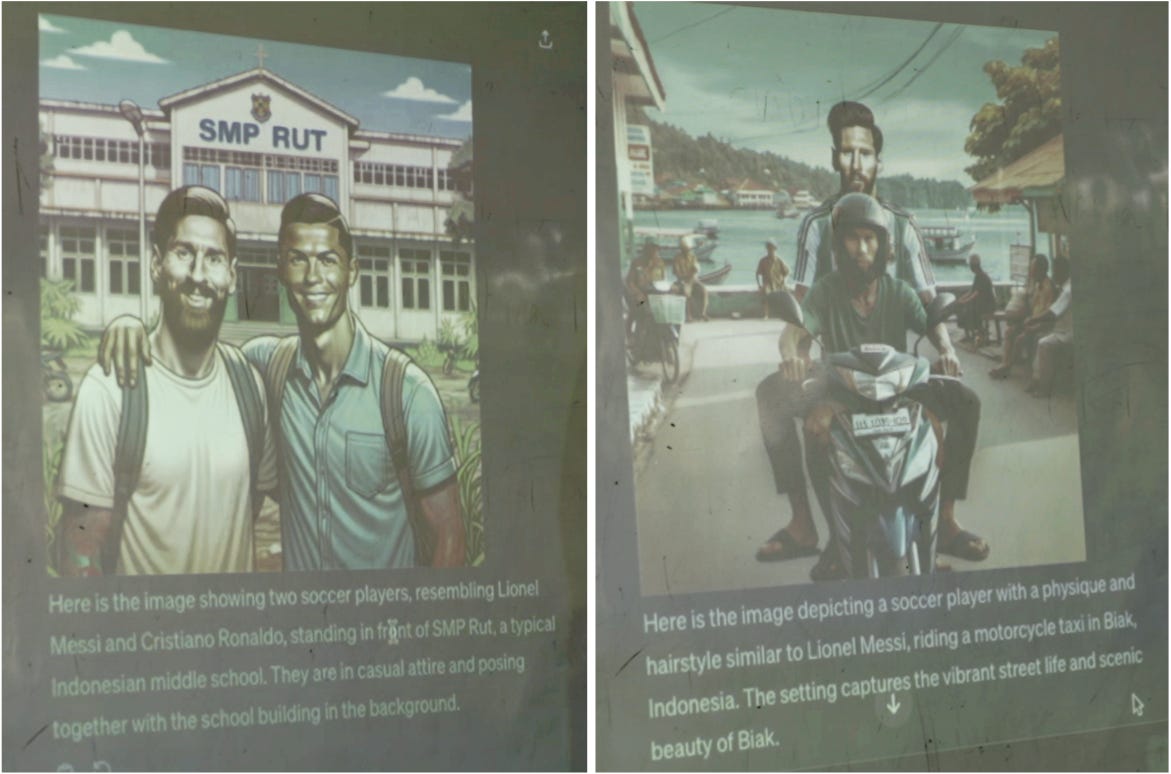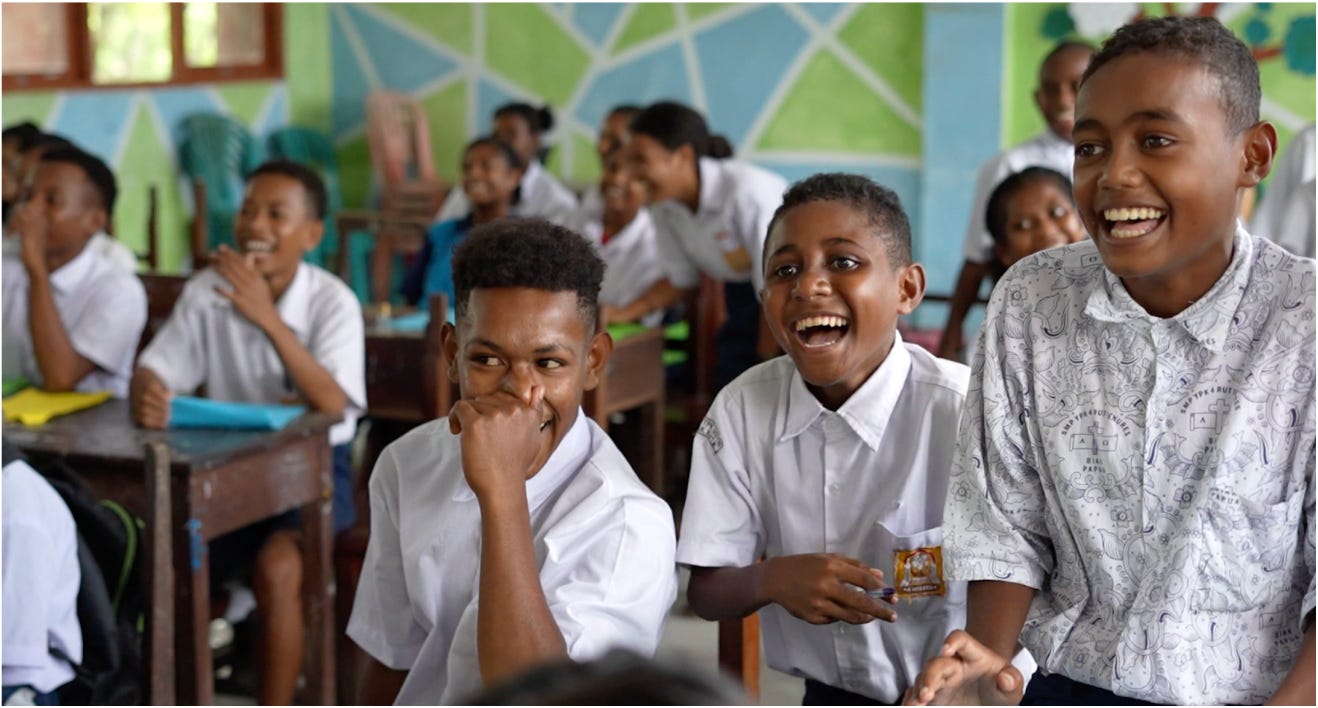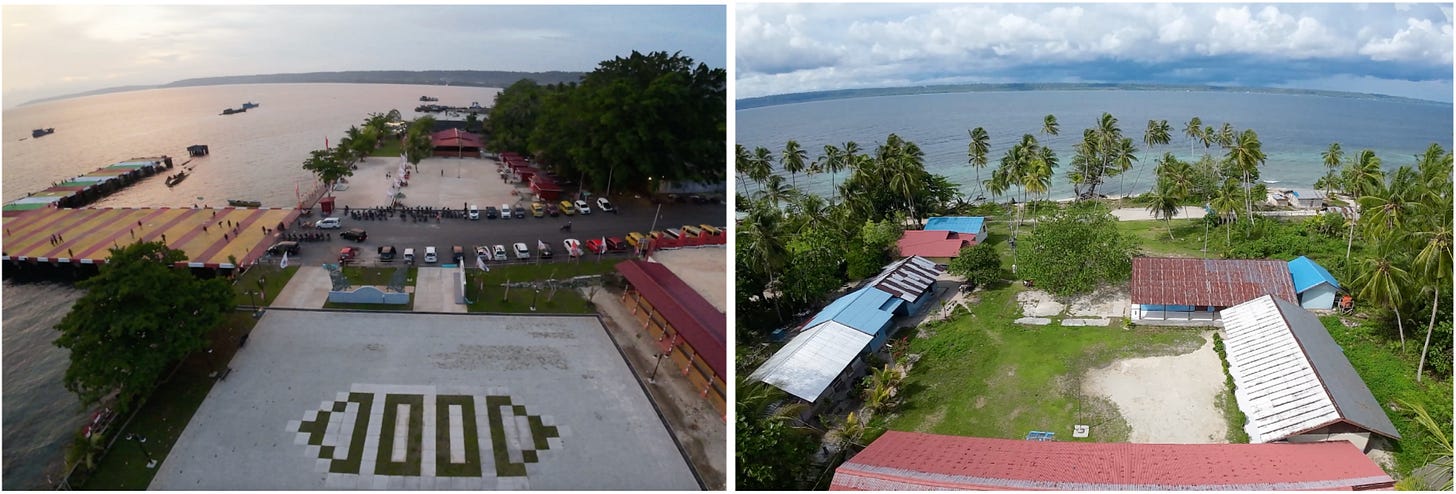In December 2023, we visited Biak, Papua, for the first time. How did we end up there? Well, we were looking to travel somewhere that could help open up our minds about education in remote Indonesia. After some exploration, we got connected with Ms. Sari from the Pensil Peduli Foundation, a non-profit working to improve education in Biak, who kindly offered us an opportunity to visit the city.
During the trip, we visited three schools: Rut in the city center, Sundey in the city outskirts, and Elim on the nearby Owi Island—through the differing environments, we hoped to gain a more balanced understanding of the situation there. Additionally, we had a great time meeting with local pioneers, diaspora volunteers, and some homegrown entrepreneurs. If you are curious about how things looked there, we created a short documentary based on our trip titled Wordcatchers (or Penjala Kata in Indonesian).
While it's hard to fully capture all the lessons we gained in a short essay, we'll try our best to share some of the key insights that left a mark on us here.
Literacy
The big theme that became our highlight was literacy, precisely the lack of it. Many middle school students still struggled in reading and writing, let alone tackling subjects like math or science. Sure, there were a few outliers, like the kid who loved reading web novels. However, overall, the situation was concerning. Note that literacy isn't just about knowing how to read and write—it's also about understanding and applying the more profound meaning behind the information one consumes.
One impact is in terms of the capability to imagine abstract concepts. For instance, when we asked students what they wanted to be when they grew up, over 90% of the time, it was either police/soldier, doctor/nurse, teacher, or fisherman. These are all essential and respectable professions, yet the lack of variety in their responses was striking. A few mentioned wanting to become a pilot or entrepreneur, but those were outliers. We didn't even meet anyone saying they wanted to pursue careers like being a scientist, financier, journalist, or policymaker.

As one may imagine, if this literacy problem is not solved, it will be tough to make other progress in the region. The case we described above was only as simple as future aspirations. The problem becomes more apparent when discussing higher-stakes scenarios, such as policy-making or economic transformation, which typically require complex abstract analyses (e.g., future projections). Without sufficient literacy (e.g., to think critically and research existing literature), the probability of making effective decisions will be hampered.
Earlier this year, Pensil started another project to improve literacy through its mobile library program—operating a car designed like a mini library to move around villages and invite kids to read books wherever it stops. They hope to start from the young generation and plant an early interest in reading. If you are curious, feel free to check here.
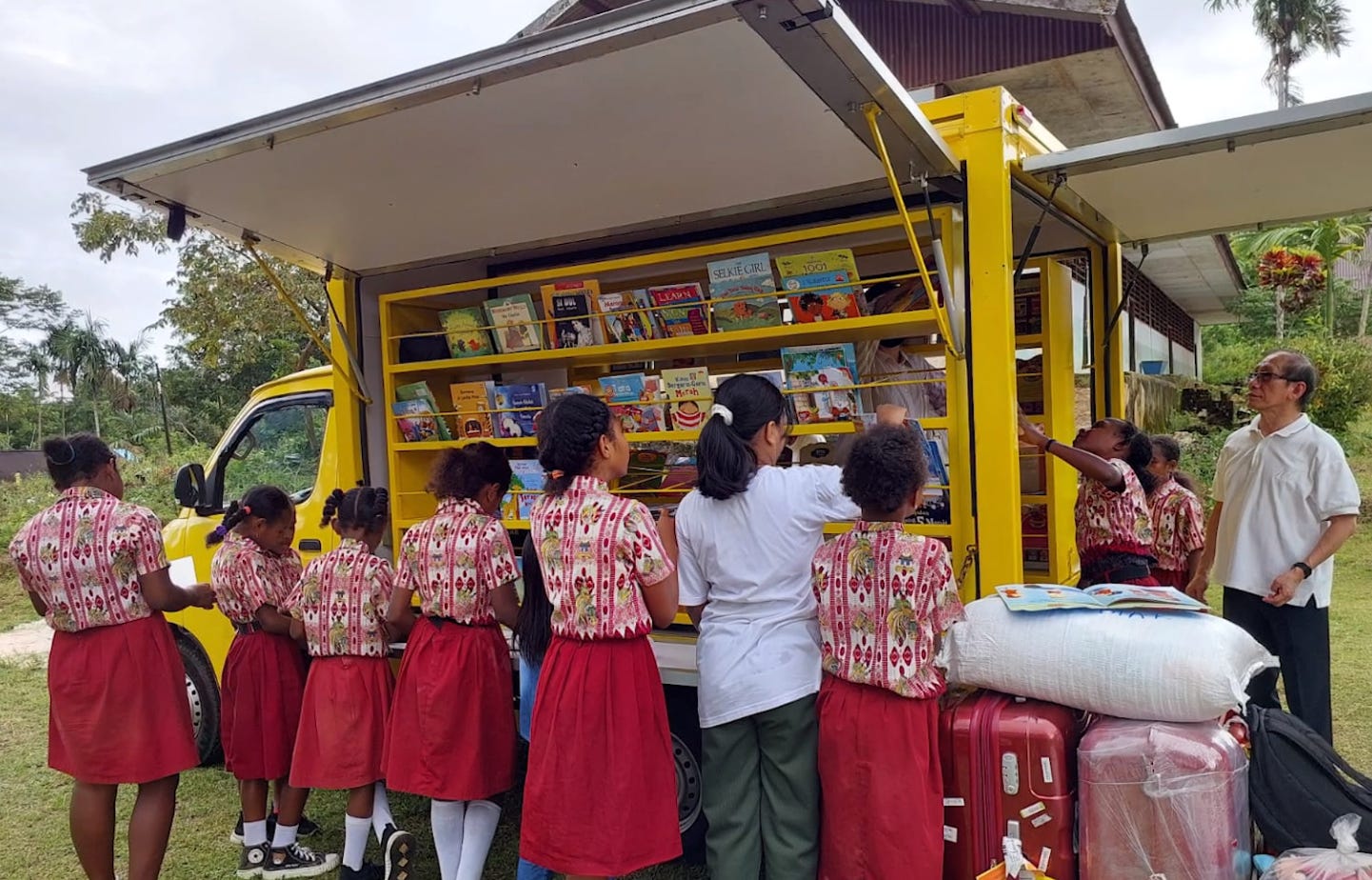
Infrastructure
Regarding cellular connectivity, the 4G signal was pretty strong there. Even when we visited Sundey, which is quite far from the city center, and Elim, which is on the nearby Owi Island, the signal was still relatively okay, at least around the schools. Over time, it will perhaps become even better with the rise of technology like Starlink. The issues are more around affordability (e.g., of phones, data plans) and utilization (i.e., whether they can use it to do something productive).
The roads were also in relatively good condition, at least around the coastline area where we mostly spent our time. The unfortunate part is perhaps the public transport, which was almost nonexistent. Some students even had to spend 1-2 hours walking to school.
Within the city itself, there are also nice malls, cafes, restaurants, and even gyms. They might not look as fancy as those in more developed cities, but they far exceed regular presumptions about how left behind the area is. The gears of modernization are clearly in motion.
Unfortunately, infrastructure within local schools, such as the building conditions, available learning tools, and other relevant needs to adequately equip students, was still lagging behind. Let alone digitization, many wooden tables and chairs were not even in good condition to create a comfortable classroom space. One hope is that now that the roads and internet are in a better state, the government could start paying more attention to allocating more resources to the education sector.

Establishing Relevance
Upon visiting the schools, we prepared various activities—story sharing, quizzes, drawing sessions, etc. Among them, the moment when we decided to showcase image generation capabilities as part of a quiz session introducing various technologies (e.g., digital maps, e-books, and AI) was particularly memorable. It taught us the power of relevancy.
At first, when we told the students we could create a digital painting in a few seconds, many were surprised, but most seemed indifferent. But then we started asking them for ideas of what to generate, and suddenly, it was like a floodgate opened. They grew up obsessed with soccer, so, of course, they wanted to see top players like Messi and Ronaldo photoshopped into local scenes—riding ojek (motorcycle taxis), sampling ikan julung (the regional halfbeak fish dish), popping by their school, and so on. Some asked for their favorite anime characters, like Naruto, to be inserted into village landscapes. They got so excited when these wild mashups from their imagination came to life on screen.
Now, it might be easy to dismiss this as just a bit of entertaining novelty, a fleeting fascination. But the point is that it got those students genuinely excited about something technology could do. It piqued their curiosity. The goal was to get them interested to the point where they would be motivated to explore independently. Who knows if those artificial images could motivate them to turn it into a reality in the future (e.g., if Biak becomes a tourist destination)? The possibilities are vast.
Looking Forward
One of the popular backronyms of Biak is “bila ingat akan kembali” (which roughly translates to “if remember, will come back” in English), and indeed, we hope that we will be able to visit the city again in the future to witness its development.
We are truly grateful to the many people who made our trip there possible and made it such a pleasant experience. Our eyes have been opened to how they play their parts, and now we are left wondering how we can contribute as well. Until next time.





